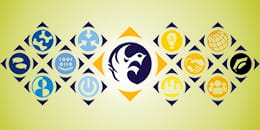Instruments and Methods
Assessment Instruments & Methods
Assessment of student learning can be conducted using a variety of available instruments and methods. Many experts believe that a combination of assessment approaches can be the most effective way to measure student learning. Fortunately, many departments on campus and at other institutions have acquired some experience with many of the more commonly used instruments. Faculty in a variety of academic programs at large and small research universities have tested and used a wide range of assessment methods to determine whether students were attaining prescribed educational goals. In this section, many of these assessment approaches will be presented providing handbook users with information that can simplify the development of assessment strategies.
Properties of Effective Assessment Techniques
- Valid
- Directly reflects the learning outcome being assessed.
- Reliable
- Inter-rater reliability when subjective judgements are made.
- Actionable
- Results help faculty identify what students are learning well and what requires more attention.
- Cost-effective
- Efficient in time and money.
- Engaging
- Both students and other respondents have the opportunity to demonstrate the extent of their learning.
- Interesting
- Faculty and other stakeholders care about results and are willing to act on them.
- Triangulation
- Aim to include a mixture of assessment tasks that enables students to build a more holistic picture of their learning, integrating the diverse strands of their program of study.
Learn More About Direct Assessment

